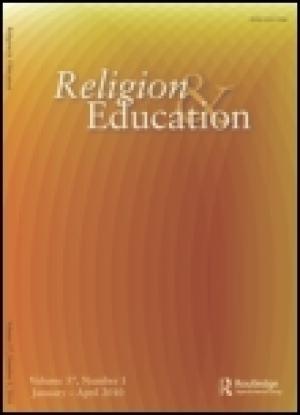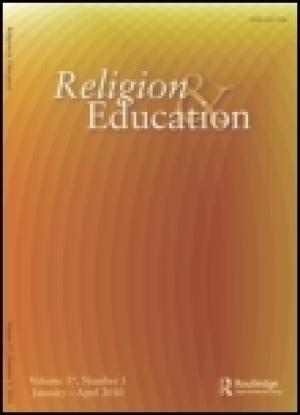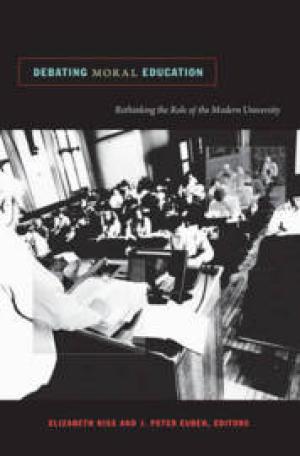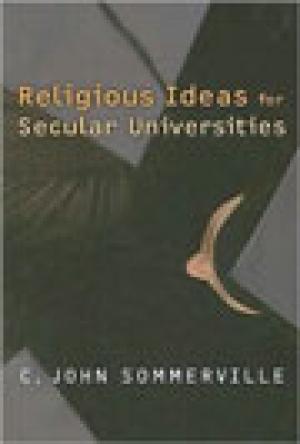Resources
Results of the second phase in an ongoing major study of the spiritual lives of college students was released in a report called "The Spiritual Life of College Students." The study was conducted by the Higher Education Research Institute (HERI), a research center of higher education based in the Graduate School of Education & Information Studies (GSE&IS) at the University of California, Los Angeles (UCLA). It is a groundbreaking attempt to gain insight into the spiritual lives and concerns of students and improve how faculties and administrators at US colleges and universities address this part of their students' lives.
One of the most remarkable things about the human consciousness is that each of us has the capacity to observe our thoughts and feelings as they arise in our consciousness. Why shouldn?t cultivating this ability to observe one?s own mind in action,becoming more self aware or simply more "conscious" be one of the central purposes of education? Even a cursory look at our educational system makes it clear that the relative amount of attention that higher education devotes to the exterior and interior aspects of our lives has gotten way out of balance. Thus, while we are justifiably proud of our "outer" development in fields such as science, medicine, technology, and commerce, we have increasingly come to neglect our "inner" development the sphere of values and beliefs, emotional maturity, moral development, spirituality, and self understanding. This growing awareness of the importance of spirituality in higher education was recently underscored by the Templeton Foundation through its award of a $1.9 million grant to UCLA?s Higher Education Research Institute to support a large scale longitudinal study of spiritual development in college undergraduates. A pilot study of 3,700 students enrolled at forty-six colleges and universities was initiated in spring 2003, and a full-scale assessment of 90,000 students enrolling at 150 institutions will be initiated in fall 2004. Perhaps the most important thing to keep in mind about spirituality is that is touches directly on our sense of community. More than anything else, giving spirituality a central place in our institutions will serve to strengthen our sense of connectedness with each other, our students, and our institutions. This enrichment of our sense of community will not only go a long way toward overcoming the sense of fragmentation and alienation that so many of us now feel, but will also help our students to lead more meaningful lives as engaged citizens, loving partners and parents, and caring neighbors.

Journal Issue.
This article describes and analyzes controversies in Japan brought about by an intercollegiate educational project on religion. The project team, consisting of selected members of the Japanese Association for Religious Studies and the Japanese Association for the Study of Religion and Society, has been planning a new system for qualifying undergraduates as "specialists in religious cultures" (sh ky -bunkasi). It is anticipated that students with this qualification will be engaged in various occupations that require knowledge of different cultures. The project reflects an increased awareness that the academic study of religion should play a social role and be recognized as worthwhile by the public. This article will focus upon the academic and pedagogical challenges that the project members faced in the process of planning a system to assess and qualify students' literacy in religious traditions. It will argue that religious literacy involves the dynamic ability to put knowledge into practice as well as to reflect continuously upon previously acquired knowledge.
Key Findings from the First National Longitudinal Study of Undergraduates' Spiritual Growth, conducted by the Higher Education Research Institute (HERI) at UCLA www.spirtuality.ucla.edu

Journal Issue.

After decades of marginalization in the secularized twentieth-century academy, moral education has enjoyed a recent resurgence in American higher education, with the establishment of more than 100 ethics centers and programs on campuses across the country. Yet the idea that the university has a civic responsibility to teach its undergraduate students ethics and morality has been met with skepticism, suspicion, and even outright rejection from both inside and outside the academy. In this collection, renowned scholars of philosophy, politics, and religion debate the role of ethics in the university, investigating whether universities should proactively cultivate morality and ethics, what teaching ethics entails, and what moral education should accomplish. The essays quickly open up to broader questions regarding the very purpose of a university education in modern society. (From the Publisher)

During the last century American students and scholars have found it increasingly difficult to discuss the relation of religion to the mission of self-consciously secular colleges and universities. Respected scholar C. John Sommerville here offers thought-provoking reflections on this subject in a conversational style. / Sommerville explores the crisis of the secular university, argues that religion and secular universities need each other, and examines how Christianity shows up on both sides of our "culture wars." The astute reflections in Religious Ideas for Secular Universities point the way to a dialogue that would do justice both to religious insights and to truly neutral secular education. (From the Publisher)

Journal Issue.

Journal Issue.